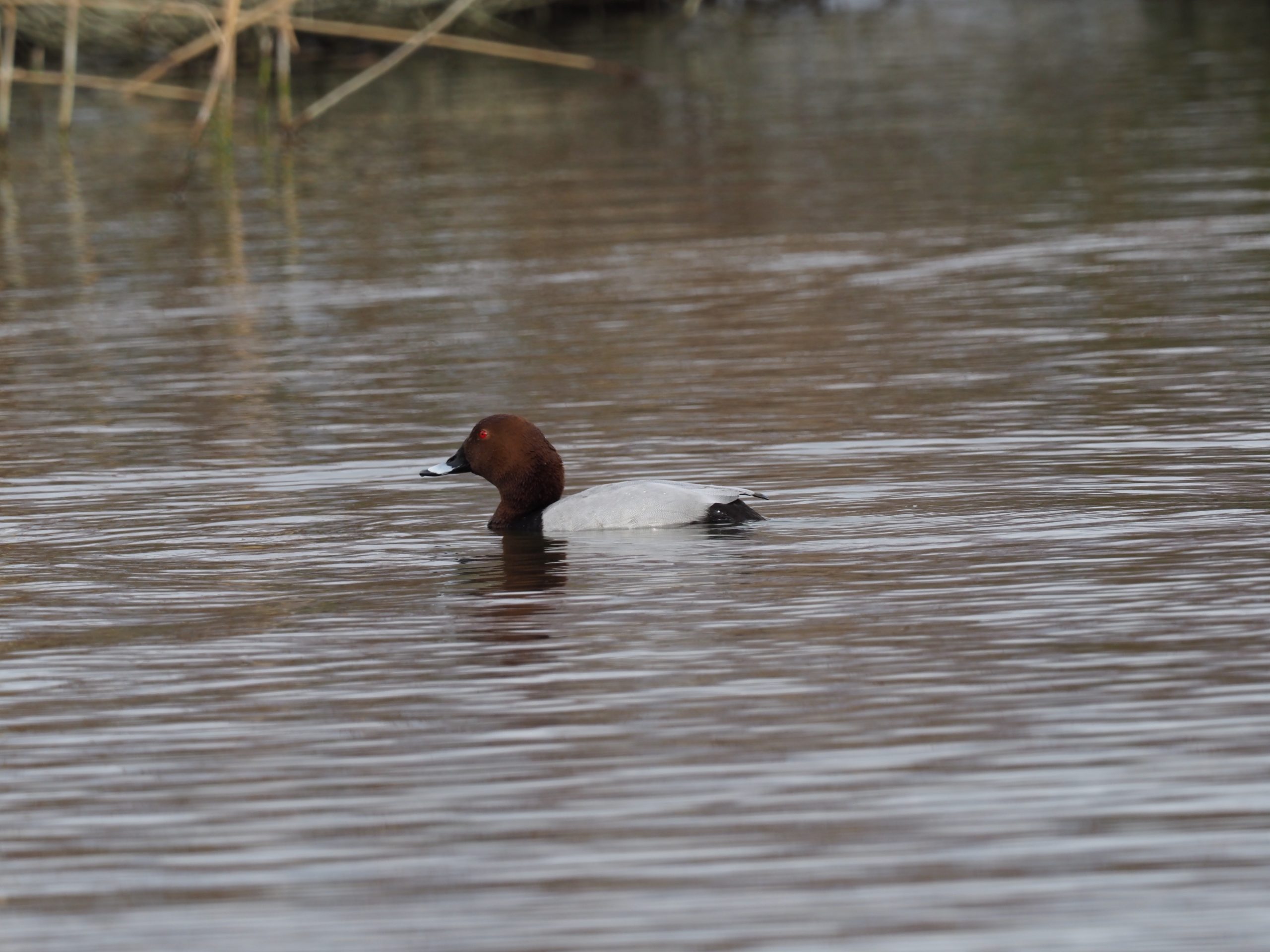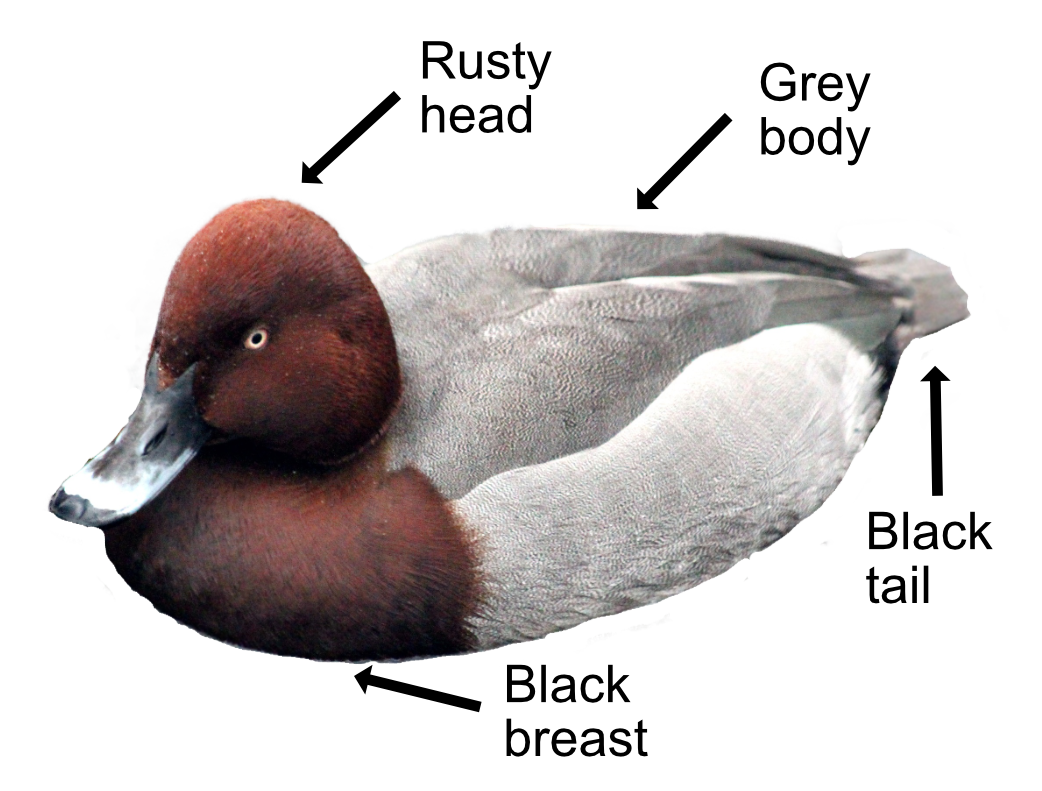
The Pochard is a dozy diving duck that seems to spend a lot of time asleep. This is because it mainly feeds at night. They are most often seen in small groups, usually with more males than females.
Slightly smaller than a Mallard, the male is pale grey with a rust head, black breast and tail. The female is a dull brown with a dark crown and blotchy cheeks from too much sleep. They have a pale grey stripe on their wings which is easily visible when they are flying. The Pochard patters along the surface of the water to take off and flaps its wings vigorously as they appear a bit small for its body, giving it a dumpy appearance. They are usually silent except when courting. The male makes a wheezing "wha-oo" call when he spots a lady he likes. They moult between June and October, the male starting first, and are flightless for 4 weeks. The male goes into 'eclipse' plumage which is a mottled grey-brown just like the female. This helps to camouflage him from predators while he can't fly.
Pochards dive up to 3m to feed on aquatic plants like stonewort and sedges. They also eat water snails, small fish, tadpoles and other aquatic insects. The males feed in deeper water than the females to show how macho they are.

Nesting begins in April. The female makes a shallow cup nest of stems and other material, including her own feathers, close to water or amongst reeds. She incubates the 8-10 eggs alone and they hatch after 25 days. The youngsters can feed themselves soon after hatching and are independent before they can fly. Groups of youngsters will often come together for a sleepover.
Pochards mainly migrate. The autumn migration takes place in September and October when up to 40,000 birds come here from Scandinavia and Russia to spend the winter. There are only about 600 resident pairs that breed in Britain. Pochards are on the 'Red List' as their numbers have been declining. Their Latin name is 'aythya ferina' which comes from the Greek 'aithuia' for some sort of ancient seabird and the Latin 'ferina' meaning 'wild game'.